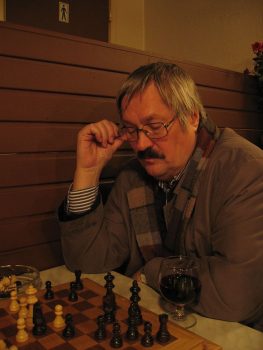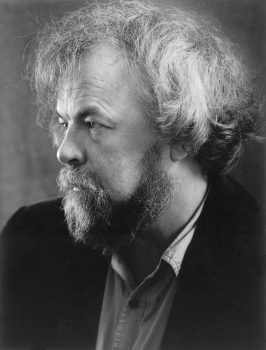Author: Pentti Saaritsa
Contemplating the cosmos
30 September 2006 | Fiction, poetry
Poems from Valkoiseksi maalattu musta laatikko (‘A black box painted white’, WSOY, 2006). Introduction by Pertti Lassila
Good morning, murmuring universe,
dim tortuous thingamybob
with your moving and unmoving parts,
which every day need
new instructions for use
even though the previous ones
were not all that clear, because the article itself
is perpetually modifying its rules of behaviour.
There are threats that our details are being checked,
exhortations to be good, to wait,
wait and believe,
to stay outside at night
in abstract space
till the next numerical series. More…
A fifth season
30 December 2000 | Fiction, poetry
Poems from Elävän mieli (‘A mind alive’, WSOY, 1999). Introduction by Lauri Otonkoski
In sparser gusts of wind
metaphors sough through the mind,
spinning as on the much-frequented
boulevards of a great park.
Even one’s most private thoughts are as common
as public transport, what a relief,
as shared as our anatomies and our bacteria,
for there is only one thread in the skein of the Norns
and the same fabric is always being woven
from the whims of fate: is that not a relief?
Treacherous individuality suffices only
for a fingerprint.
Metaphors always the same,
but constantly born anew
like a mind alive. More…
Ascensus
Issue 2/1993 | Archives online, Fiction, poetry
Poems from Virtaava seinä (‘Flowing wall’, 1984). First performed by Toimii!, Stockholm, 1984. Introduction by Lauri Otonkoski
Ahead lies a journey
but those who are embarking on it
are fascinated as much
by the finer-than-fine bright wall,
wall flowing like the wind separating what
is not
from what is right now
beginning to be born
from their own movements:
these restless spirits
were born in the same valley
each prepared only by their own story
each with an instrument that is more good will
than any curved or straight wood or metal,
and in this world,
its Western Yard, it is
a little dark
and it is not yet time to decide
whether it is now morning or evening.
Someone is calling, or wakening, some instrument
that is pure suggestion, a cry of departure
or a quiet enticement: ready?
It is accepted, it is answered,
it is like the voice of Reason in the cool air,
and when they all tum to start their journey
before them is rising ground, a whole hill,
a slope and a mountain the size of Europe More…
Tritonus
Issue 3/1976 | Archives online, Fiction, poetry

Pentti Saaritsa playing chess. Photo by Otso Kantokorpi, 2006.
Pentti Saaritsa (born 1941), author of six collections of poetry, is one of Finland’s leading left-wing poets, who writes about a wide range of individual and social themes. An outstanding translator, he has had a major role in making Latin American literature, especially the work of Miguel Angel Asturias and Pablo Neruda, known and admired in Finland. He also translates from Russian. The first five poems below have been taken from his latest collection Tritonus (‘Tritone’, Kirjayhtymä 1976), and the last two from his Syksyn runot (‘Autumn poems’, Kirjayhtymä 1973). His poems have appeared in various anthologies abroad and are now being translated into Swedish, English and French. Pentti Saaritsa is a member of the editiorial board of Books from Finland.
![]()
1
From the bowels of each apartment house
always that one unknown sound is borne.
Sometimes like drily dripping water, sometimes
as a stone might bite a lump out of itself,
Or a child awake in the dark might learn the word hair.
And a tenant listens, makes a note of it
perhaps to punctuate the interrupted writing of his consciousness
when it makes him restless:
What now, again so soon, is it coming from me
or from the dead building.
An alarm-bell. Did anyone else hear? More…


